Unpopular Opinion: Judge Erika Kirk For The Right Reasons
If I hadn't changed my boobs-on-a-platter dress before my husband's memorial, would I also be fair game?
Hi all-time favorite people!
I hope everyone is feeling optimistic and gung-ho after the election results this week. I wrote out a whole thing about my takes on that here that I am now cutting because I prefer to talk about it with you in the comments, where there is dialogue rather than me spewing. So join me there for that if you care to.
Speaking of comments, amazing Celia, who wrote today’s featured story below, and I met in those very same comments a long time ago (well, double-digit months, which is long in AJPT years). She is super smart (see the three letters after her name?) and I knew something would come along that would be exactly the right longform thing for her to write for us, so I bugged her to let me know whenever she had ideas.
Then this week Celia sent me this Unpopular Opinion and I’m really excited to talk to her and you more about it. I thank Celia so much for the story and also for her patience with my process, including asking her for the same caption approximately five times (I am still juggling and working solo over here, but the fantasmagorical Charlie jumped in and built that opening image yesterday out of the greatness of his heart and so it wouldn’t look like shit - thanks, Charlie!)
Unpopular Opinions have turned out to be one of my favorite categories that we publish here at AJPT. A lot because of all the funny/brilliant/opinionated/ill-conceived (those are mine) comments, which are becoming a theme of this letter. So send me your own Unpopular Opinion if you like - I would love to publish yours and, if so, pay you a princely sum ($50). Send it to me at Jane@AnotherJanePrattThing.com.
But just before you do that, I have a request. Remember how I was telling you in my last letter (the one where I am marrying Dale Moss) how busy things have been? So what do you do when you are maxed out with deadlines and responsibilities? Pile on another one? Yep, my daughter and I rescued a cat (to go along with the two dogs we already have in the apartment) and now need to name him. Which is where you come in, if you’re up for it. (For some reason, I have a feeling if you tell me the names of your cats, it might be in there somewhere?) Here are some details that might inspire you:
He is from my homestate of North Carolina.
His picture from his most recent modeling shoot today (one of many) is below, along with the paperwork that shows the name that the rescue place was suggesting - which it took me a while to figure out, but his brother was called Cream, so put them together and it makes sense.
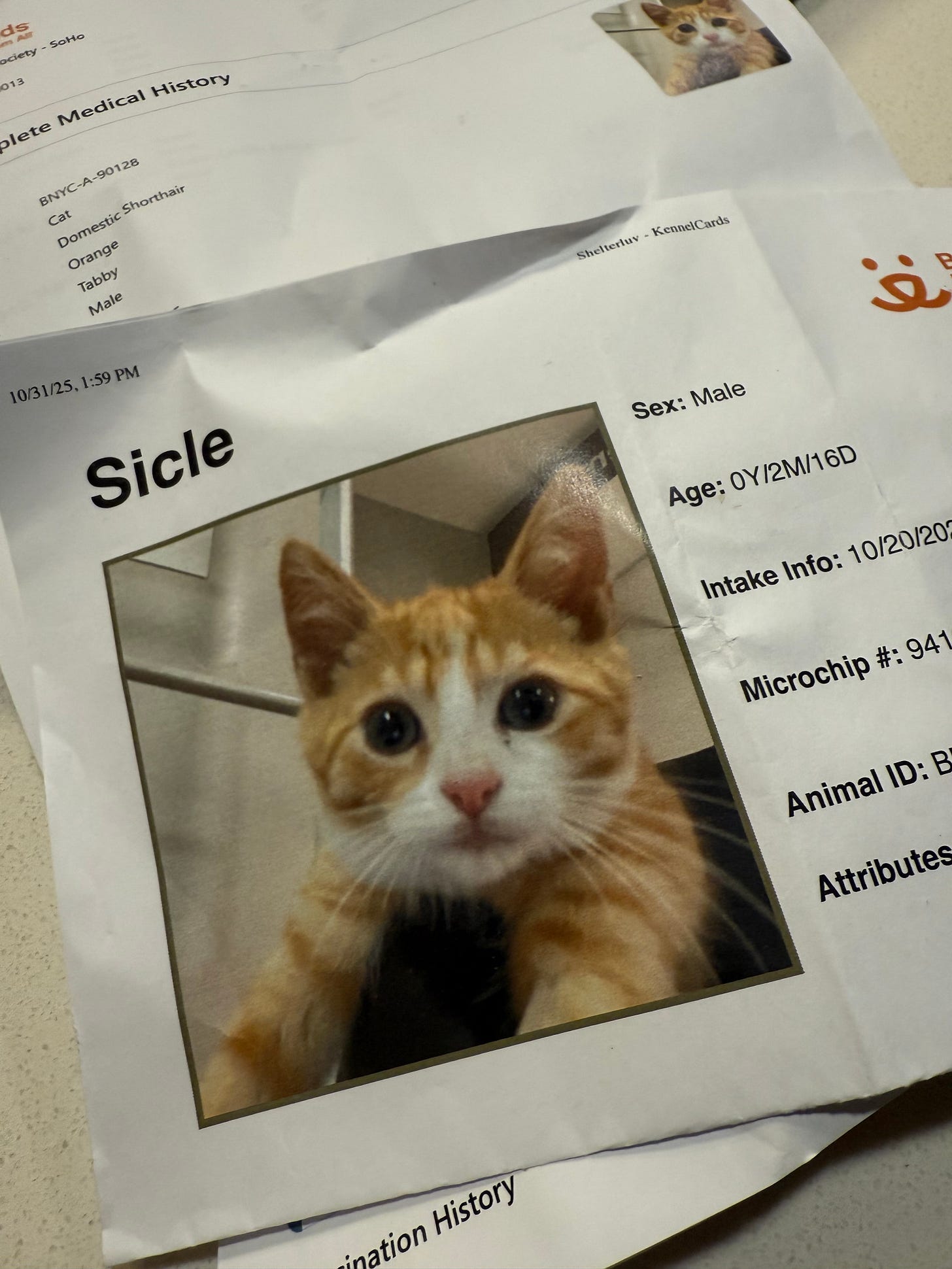
Our previous pets, all doggies, have been named:
Balloon
Lemon
Sunflower
Lunch
One name under consideration is Grits, but I’m not 1000% sure about it, the way I was when I hit on “Lunch” and just knew (“the way you know it’s time to change your tampon” - to quote one of my favorite Christina Kelly Sassy magazine lines of all time. So if you don’t have any name ideas, you can still let me know thumbs up or down on the name Grits for this sweet little dude. And by the way, the cat and dogs are getting along fine, but Lunch keeps me awake at night asking for more attention ever since the new kid arrived (Dale will have to help me figure out how to cope with that dynamic when he moves in).
Ok, on to today’s piece of interest and topic of discussion. (I know it's weird that the comments are going to have potential cat names and discussions about widowhood mixed in together, but we'll make it work.)
I love you, yes I do!
Jane
By Celia Cain, PhD
The night before the local memorial gathering for my husband, I put on a bright blue wrap dress. One of his favorites. I had worn that dress for him, and I thought, maybe, I could wear it again now. For him.
I looked in the mirror and laughed.
Boobs on a platter.
No wonder it had been his favorite.
I put it back in the closet and pulled out something black and modest instead. Because no matter how much he disliked it, black felt like the right signal. It told the room I understood what had happened. It told them I was grieving. It told them what they expected to see.
A few days ago, Erika Kirk, widow of Charlie Kirk, introduced Vice President J.D. Vance at an event. As he took the stage, he hugged her. The moment was brief and unremarkable. What wasn’t unremarkable was what she wore: black leather pants.
The Internet lost its mind.
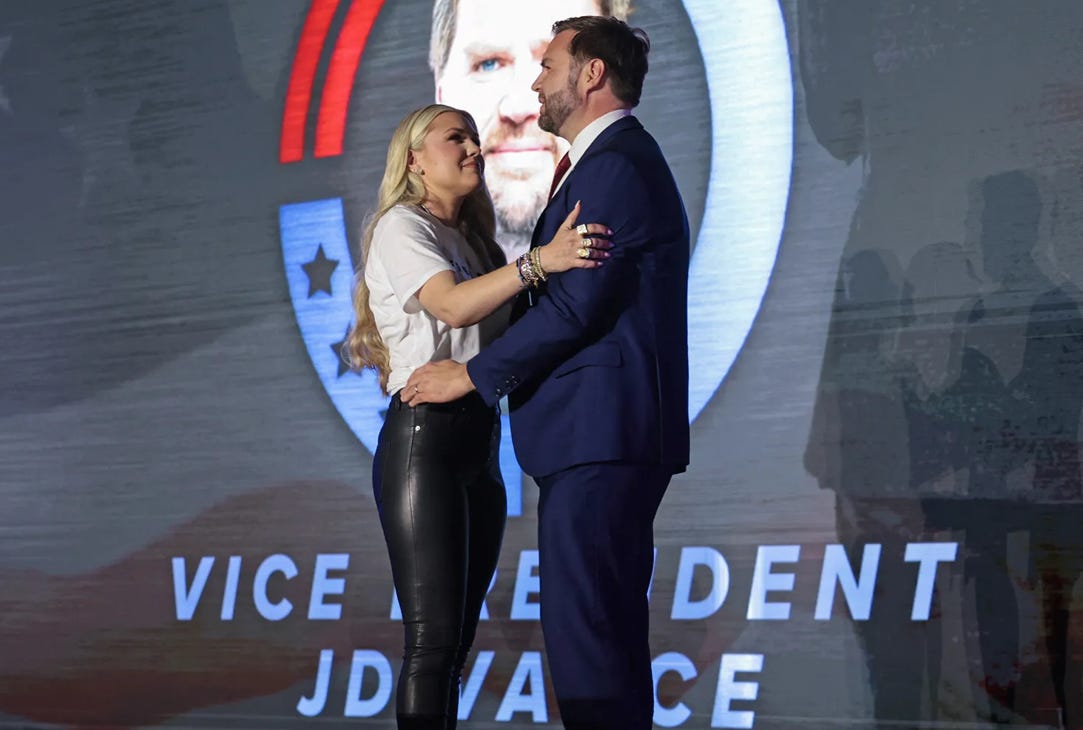
People called her disrespectful. Inappropriate. A whore. A husband-stealer. As if any sign of sexuality discredits her grief. As if widowhood should mean neutral colors, shapeless clothes, and eyes forever rimmed in red.
It reminded me of that blue dress. And how quickly I put it away.
I know what kind of widow wears an outfit like that.
The kind who has just lived through something unbearable and knows the world is watching.
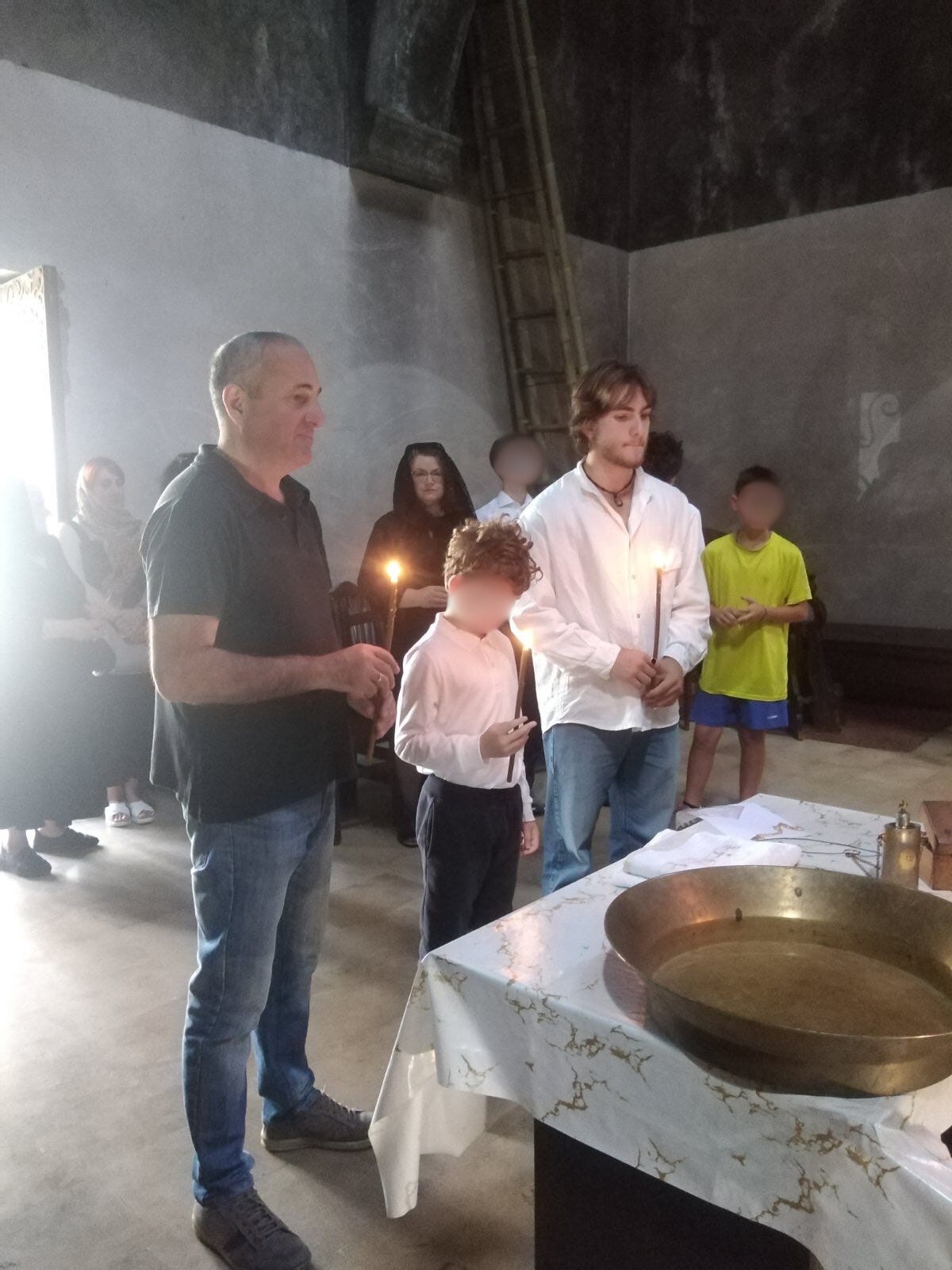
We Ask Grieving Women to Perform — And Then Punish Them for It
We want grief to be visible, but only in the right way. Which is to say: in a way that makes everyone else comfortable.
Grief is a performance. If you’ve never had to perform it, that might sound cold. But performance is what holds us together when we can’t fall apart. You put on the clothes. You show up at the funeral. You take care of the kids. You keep your body upright. And the only way to do that is to concentrate on the role you’re playing.
Erika Kirk performed. She stood beside her husband’s casket. She posted a 12-slide Instagram memorial. It was raw. It was curated. It was public.
In one frame, she knelt beside his casket. In another, wind swept her hair on the tarmac as his body was loaded onto a government plane. She whispered “I love you” to his embalmed hand.
Some critics called it “sinister.” Others mocked her hair and makeup. Some claimed it was all performative. Too much. Not enough. Too soon. Too late.
But none of that tells us how she’s grieving. It only tells us how deeply uncomfortable we are with public mourning. We demand grief that conforms to our own expectations. How quick we are to punish women when it doesn’t look how we think it should.
Some Perform Loudly. Some Perform Quietly. It’s Still Grief
David and I met in Toronto shortly after I moved there in 2003. We married on Christmas Eve, 2005. We had three boys and a beautiful life. Then he was diagnosed with ALS on July 2, 2020, in the thick of COVID. I was standing beside our bed when he called from the hospital parking lot to tell me. My knees gave out.
I thought: This is how our story ends.
And also: This is the last time you can collapse.
I was his primary caregiver for two years. No PSWs, no aides — just me, until the final weeks, when nurses and doctors visited more regularly. On the last day of his life, after getting less than 90 minutes of sleep, I told him I needed more help and would call about getting a support worker on Monday. He died that night. July 18, 2022.
We buried him in Georgia, his beloved country. The funeral followed our youngest son’s baptism, which we’d delayed for years so his family could attend. I stood at the back of the church, head covered, silent. I’m not Orthodox, but I knew the rules. I wanted to get it right.
My mother-in-law wailed throughout — calling out to God, to the icons, to the stone walls. Her sister-in-law joined her. They weren’t comforting each other; they were out-lamenting each other. Competing, maybe. Or continuing some long-standing dynamic I never fully understood.
It made me uncomfortable. Not just because it was unfamiliar, but because I was holding myself together by a thread. I’d studied lament traditions as an ethnomusicologist, but that was academic. This wasn’t singing. It was something else. Maybe a ritual. Maybe rivalry. Maybe pain. Maybe support. I had no way of knowing.
And I wasn’t participating. I didn’t wail. I didn’t speak. I didn’t cry.
I just stood. Still, silent, and barely upright.
But that, too, was a performance. A different kind of grief. Not louder or quieter. Not better or worse. Just mine.
Women’s Grief Is Always Under Surveillance
When David died, I was 47. At the bank, the clerk walked past me, looking for someone older. At Costco, they accused me of fraud when I tried to update our membership. My middle son’s school required extra paperwork and “proof of death” when a strike delayed our return.
Some praised my composure. Others tried to set me up. And old friends who used to complain about their marriages suddenly treated me like a threat — as if widowhood came with a plan to steal their husbands.
Death makes people weird.
Mourning used to come with rules. Veils. Timelines. Fabrics. Etiquette. Those rules are gone, but the judgment remains. Cry too much, you’re hysterical. Don’t cry, you’re cold. Wear makeup, you’re vain. Don’t, you’ve let yourself go.
You’re too sad. Not sad enough. Too polished. Not polished enough.
You’re never just grieving.
When A Widow Loses Her Husband, She Also Loses Her Shield
A few weeks after Charlie Kirk’s assassination, a fake post started circulating. It claimed Erika was launching a Christian dating app. “I’m on it too,” it read. It was obviously fake. But some treated it as real.
When I pointed that out, someone replied that she was “fair game now.”
Fair game. As if she were a deer to be hunted. As if her body was public property.
It’s not just misogyny. It’s patriarchy. Because when a woman’s husband dies, she becomes vulnerable. Not just emotionally, but structurally. She is now a woman without a man to shield her.
Last summer, I had a dispute with a neighbor that never would have happened if David were alive. He would have diffused it with a few words and a cold beer. Instead, my neighbor threatened me with lawsuits. Raised his voice. Cussed in my face.
Because I was alone.
And that made me a target.
Widowed women aren’t fair game because we’re in public. We’re fair game because the world still sees us as incomplete without a man — and newly punishable for existing without one.
Speculation About a Hug Says More About Us Than It Does About Her
At the event where Erika introduced Vice President Vance, he hugged her briefly as he took the stage. That hug became a new round of speculation. Was there something between them? Had she moved on? Was he cheating on Usha?
I hug a friend of 30 years when he visits. He and his wife have supported me and my boys with loyalty and love. No one suggests we’re having an affair. No one whispers that it’s too much. They understand the difference between comfort and collapse.
But if you’re a woman in public, especially one aligned with power, that grace evaporates. A hug becomes a scandal. A gesture becomes a theory.
The conspiracy isn’t in the embrace — it’s in the need to dissect it.
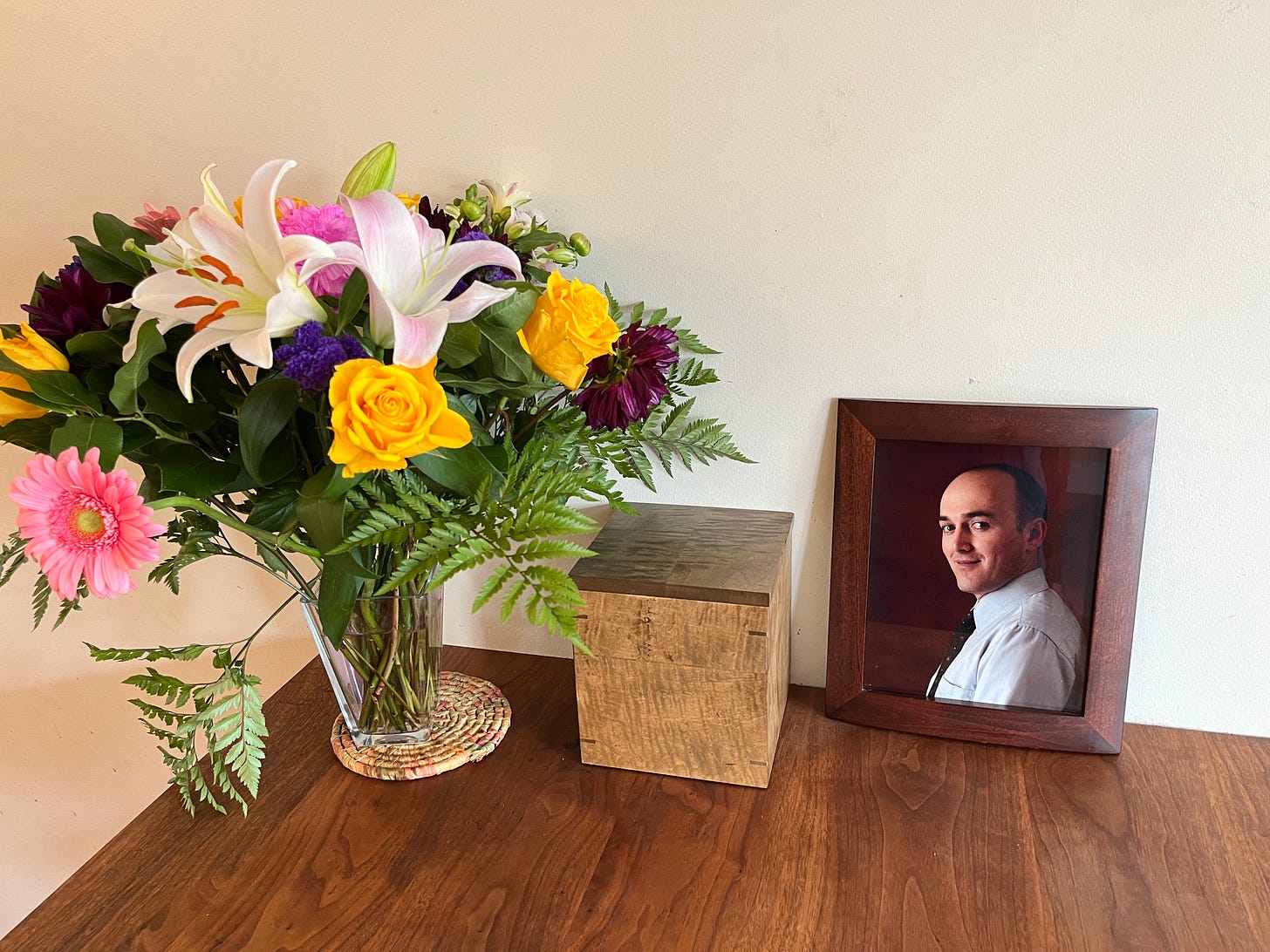
You Don’t Have to Like Her Politics to Recognize Her Pain
I had two years to come to terms with David’s death. I had time to say goodbye. To show him I loved him. To prepare our kids. That’s a privilege.
What Erika Kirk went through was brutal. It was public. It was violent. And the mourning that followed was shaped by cameras, expectations, and immediate political consequences. None of us knows how we’d handle that.
I’ve thought about Erika Kirk often, and probably will again. Not because I see myself in her. But because I see what the world does to women like her. And like me.
Grief isn’t a contest. It isn’t more real for being loud, or less real for being quiet.
It’s always a performance, but that doesn’t make it fake. The performance is often what keeps us from falling.
Erika Kirk is part of a political machine I oppose. She speaks for a movement I know to be dangerous. You can challenge her worldview. But if your first instinct when she becomes a widow is to mock her leather pants?
You’re not critiquing power. You’re reinforcing it.
Let her grieve. Let her be wrong about almost everything else, and still human in this.
Let her be a widow.
\


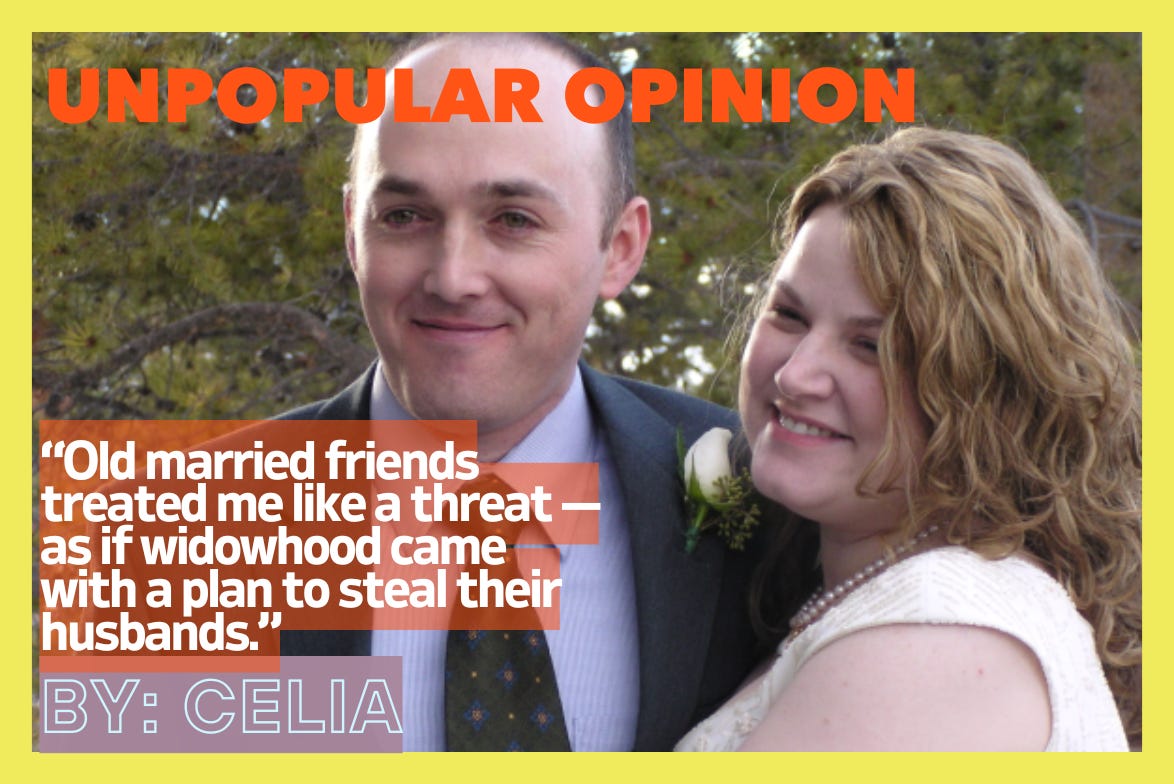
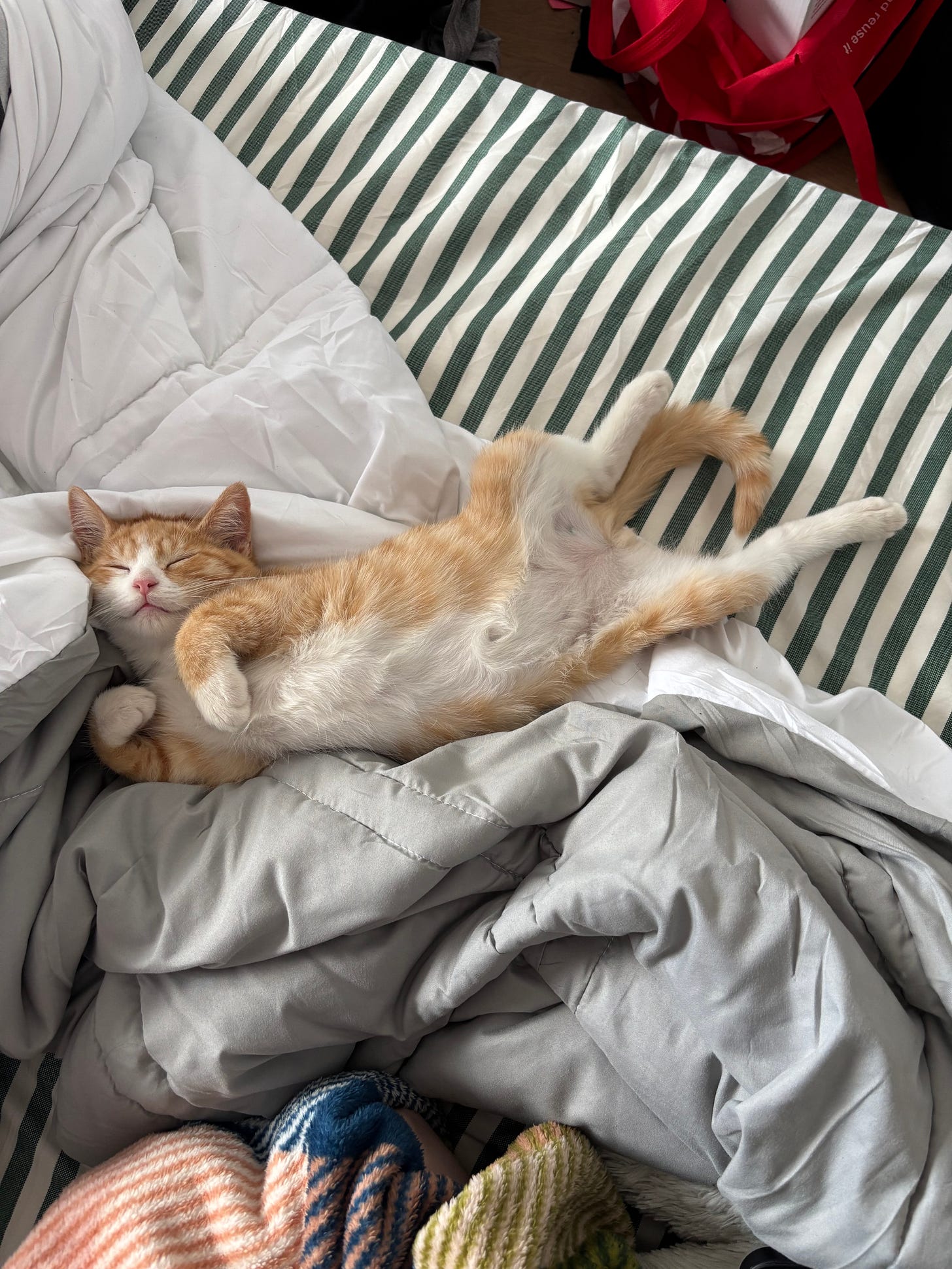

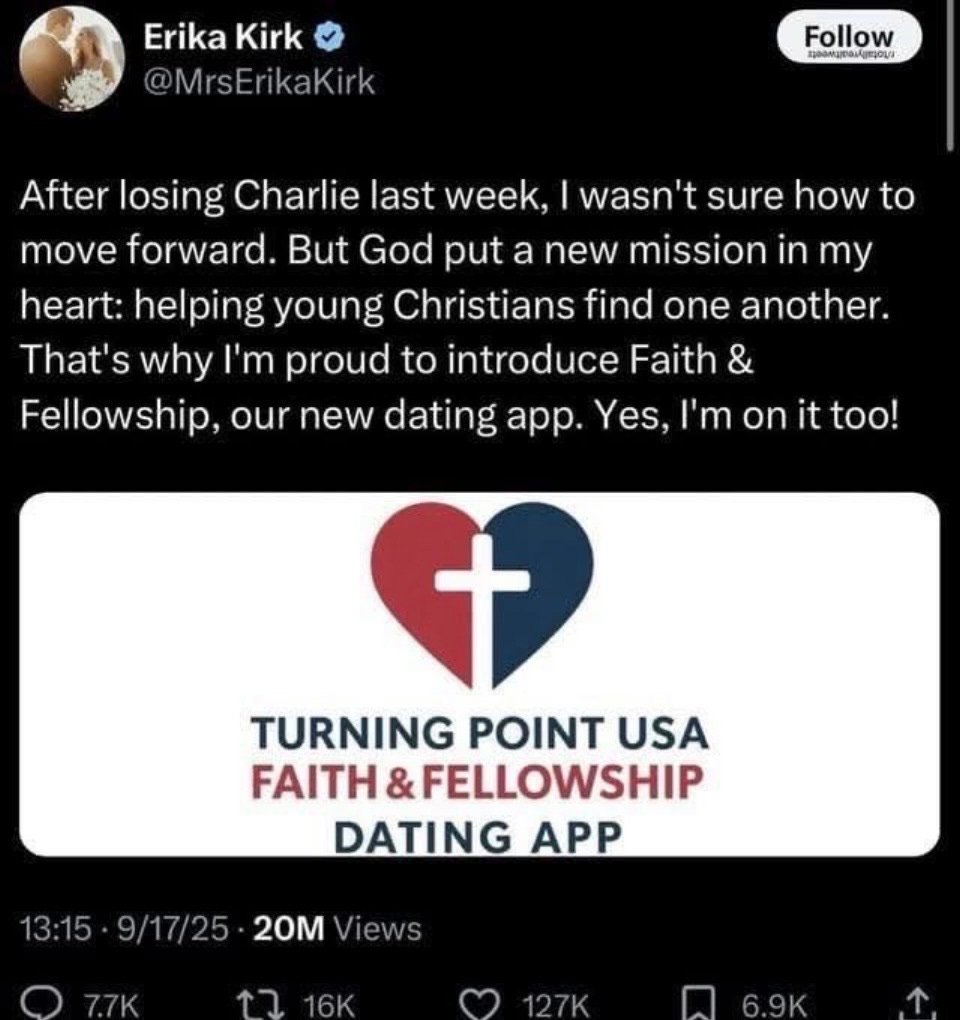

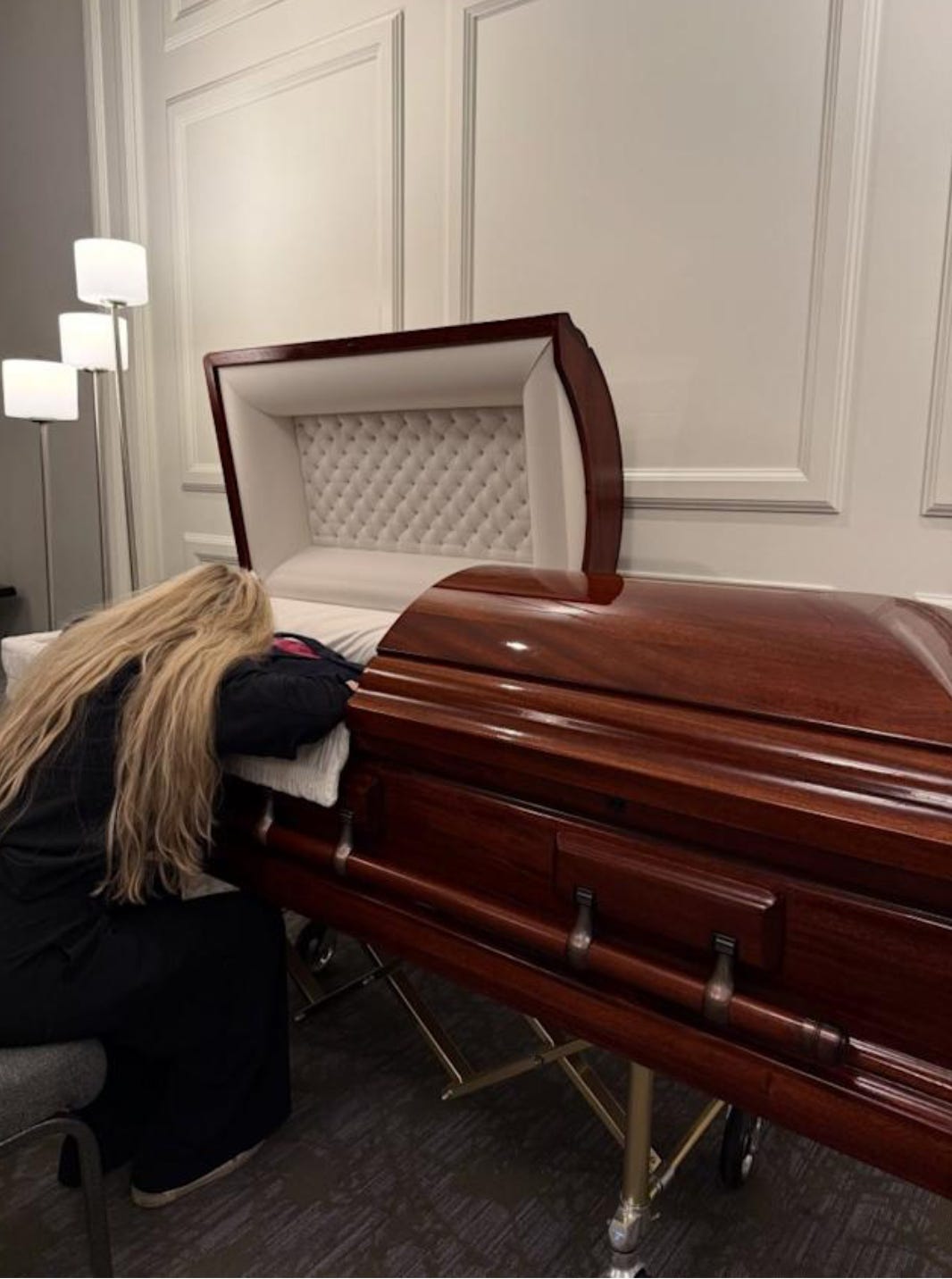
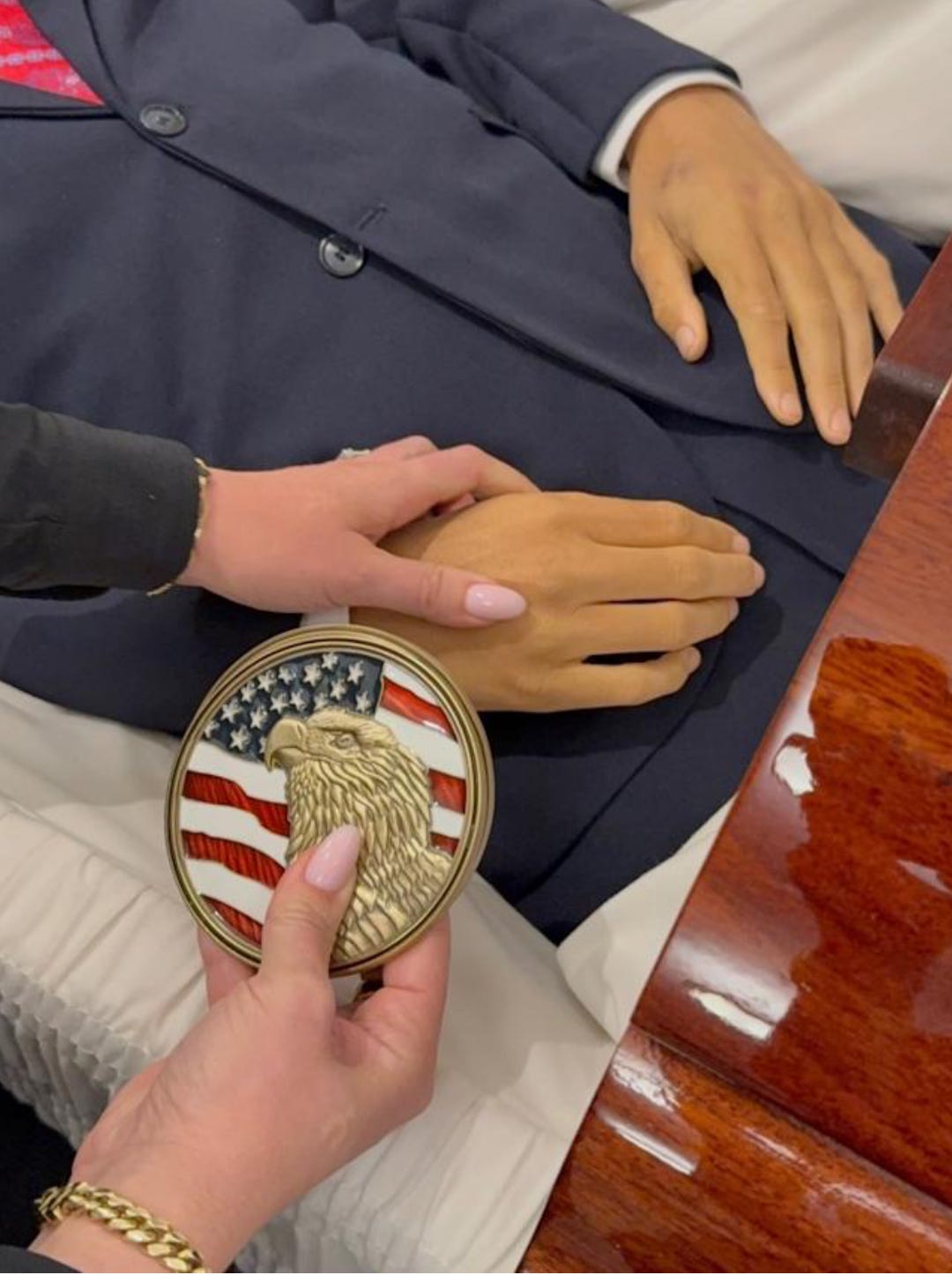
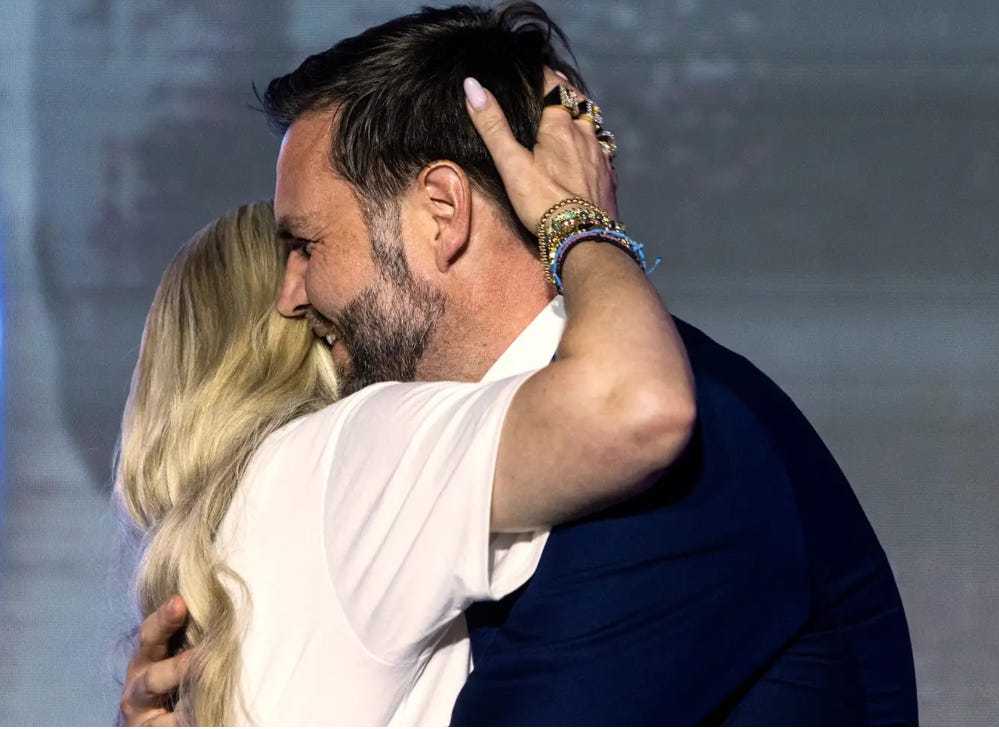
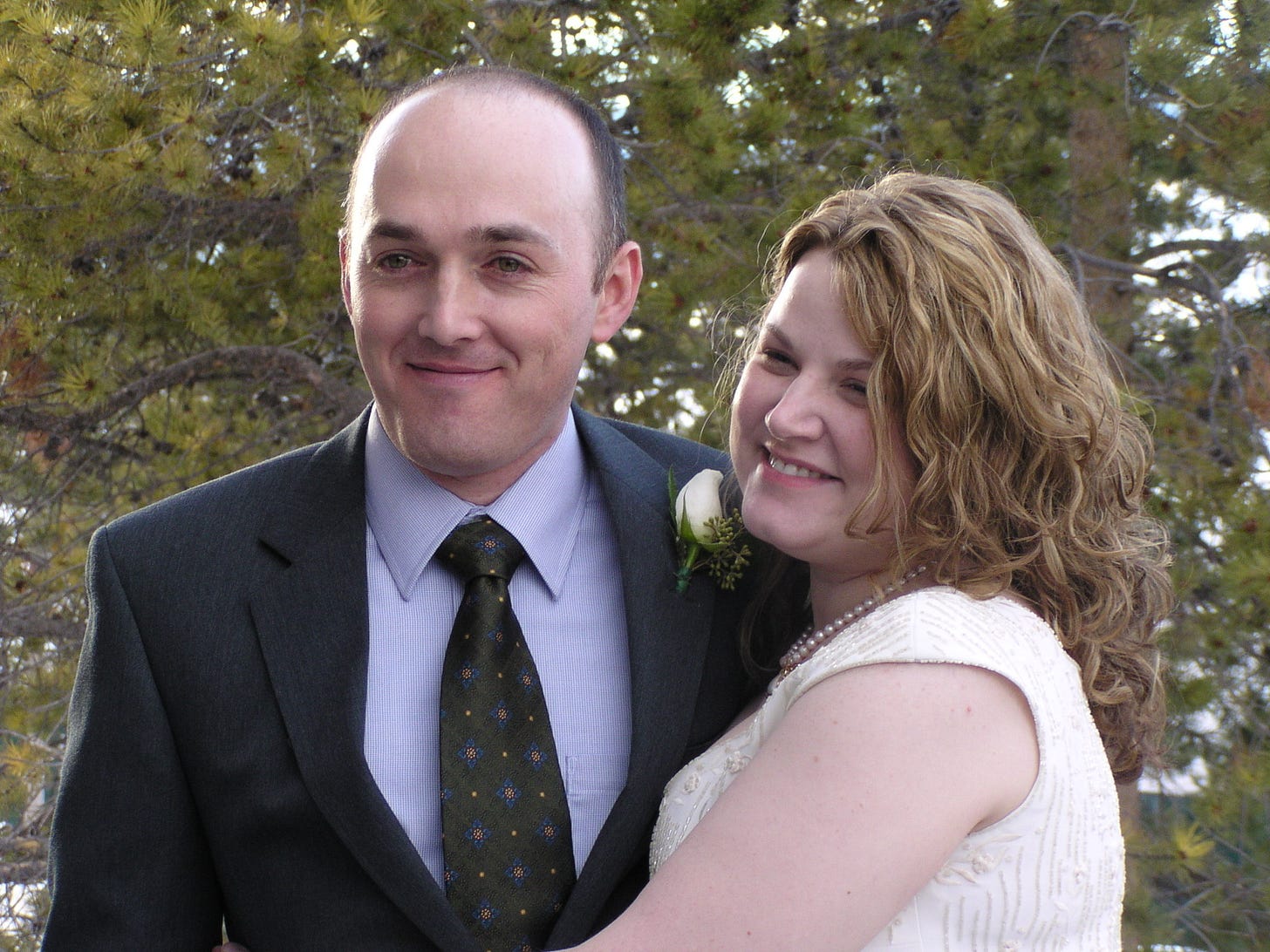
Oh Celia, I have so much to say that I know I will be back here a couple of times in these comments, so be forewarned.
4 things right off the top:
1) thank you thank you thank you
2) your husband's face is the kindest, and the two of you look alike in the way that some of the best couples ever do
3) I'm so so sorry for your loss
4) the part about being vulnerable without the shield of a man hit me really hard. I've never had a husband or shield in that way, but I learned from this that the way society pushes that concept as a necessity for women must make it much harder to have had it and lost it than never to have had it at all.
Another one from me just to say that these comments are FASCINATING. I have learned so much and thank you for being right in here without me even having to bug you, Celia (as other writers here can attest, I do annoy about this!), and being so open to conversation and giving us much more to think about.